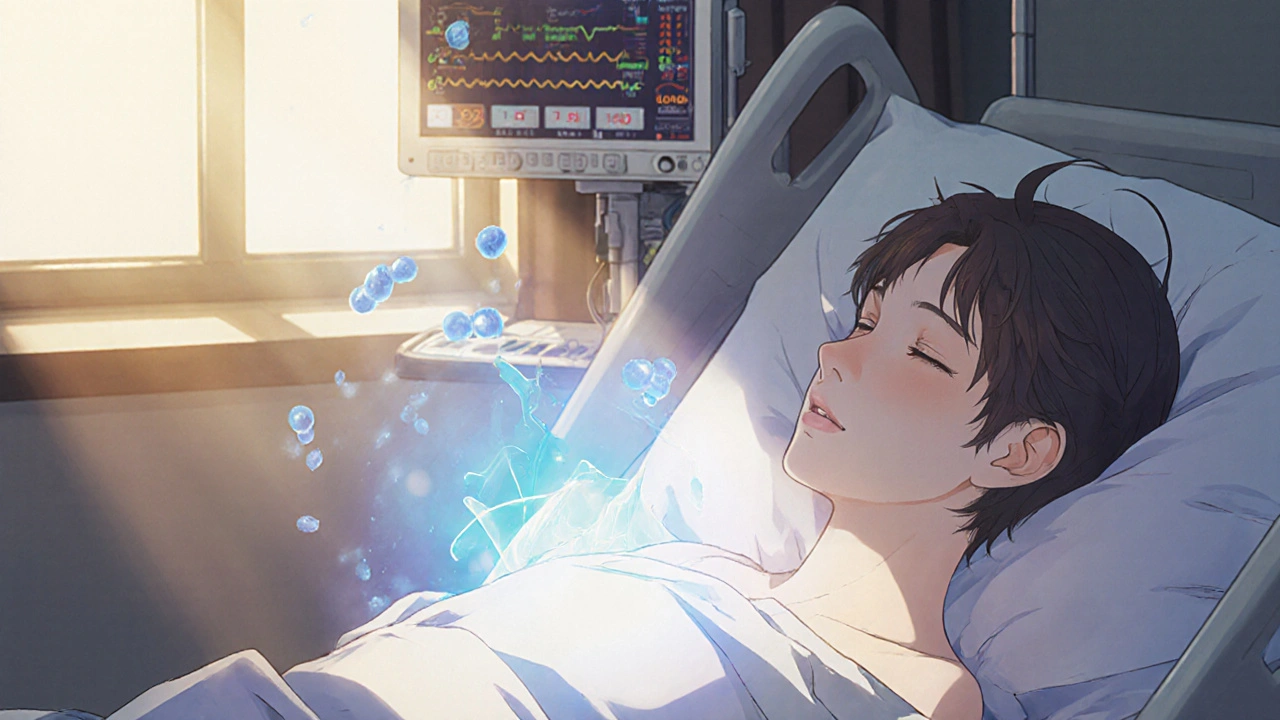Butylscopolamine: What It Is, How It Works, and When It's Used
When your stomach suddenly clenches up or your bladder starts cramping without warning, butylscopolamine, a fast-acting antispasmodic drug that relaxes smooth muscles in the digestive and urinary tracts. Also known as hyoscine butylbromide, it doesn’t treat the cause of the pain—it stops the muscle spasms that make it unbearable. You won’t find it in your medicine cabinet unless you’ve been prescribed it for acute cramps, but millions use it every year to get relief when nothing else works fast enough.
It’s an anticholinergic, a type of medication that blocks acetylcholine, a chemical that triggers muscle contractions. That’s why it’s so effective for sudden, painful spasms in the intestines, gallbladder, or bladder. Unlike painkillers that just dull the signal, butylscopolamine stops the spasm at its source. People with irritable bowel syndrome, kidney stones, or post-surgery gut issues often turn to it when they need relief within minutes. It’s also used during certain medical exams—like colonoscopies—to keep the gut still so doctors can see clearly.
It’s not for everyday use. You won’t see it advertised like ibuprofen because it’s not meant for chronic pain. Instead, it’s a targeted tool for acute episodes. If you’ve ever had a sharp, cramping pain that made you double over and then vanished after a shot or pill, there’s a good chance it was butylscopolamine doing the work. It’s especially common in Europe and Asia, though it’s available in the U.S. under brand names like Buscopan. The side effects are mild for most—dry mouth, blurred vision, or a fast heartbeat—but they’re a trade-off for rapid relief.
What you won’t find in most posts about it? A lot of comparisons. But if you’ve read about dicyclomine, another antispasmodic often used for IBS, or hyoscyamine, a similar drug with a longer duration, you’re seeing the same family of drugs. Butylscopolamine stands out because it acts fast and doesn’t cross the blood-brain barrier much, so it’s less likely to cause drowsiness or confusion than older anticholinergics.
Below, you’ll find real-world comparisons and stories from people who’ve used it—some for chronic gut issues, others for sudden kidney stone pain, and a few who needed it after surgery. You’ll see how it stacks up against other options, what to expect when you take it, and when it’s better to skip it. This isn’t just another drug page. It’s a practical guide for anyone who’s been caught off guard by a cramp that wouldn’t quit.

